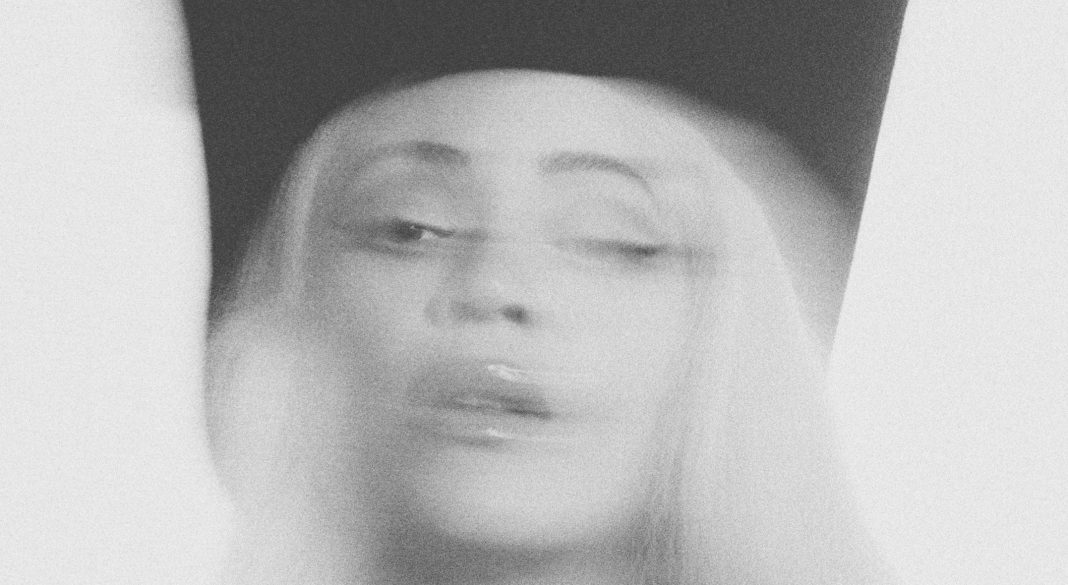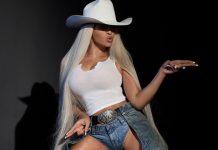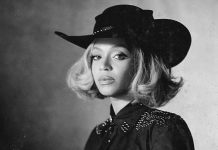You’ve got to feel a tiny bit sorry for that old Jolene. More than 50 years after Dolly Parton first begged her not to steal her man, she finds her name in the mud once again, this time courtesy of Beyoncé.
Personally requested by Parton herself, Beyoncé’s cover is one of the most talked-about tracks on her new album, ‘Cowboy Carter‘. On it, she chooses to tell the story from a different angle, a warning rather than a vulnerable lament. Focusing on the strength of her relationship, Beyoncé seems more worried that Jolene will embarrass herself by trying than she does the idea that she might ever lose — “I’m warnin’ you, woman, find you your own man / Jolene, I know I’m a queen, Jolene / I’m still a Creole banjee bitch from Louisianne (Don’t try me) “
It’s a fun interpretation, but it hasn’t gone over completely well. Across the internet, some fans love the intertextual playfulness, especially given ‘Dolly P’s opening reference to the now infamous ‘Becky with the good hair’. Meanwhile, others claim that she has ruined the essence of the track, or that to sing it this way must be a sign of further rockiness in Beyoncé’s relationship with Jay-Z, fishing for further evidence in her recent body language and public appearances.
This kind of debate over lyrical ‘clues’ is not exactly new. Over the last few years especially, we’ve seen a real rise in popularity for artists who are well known for writing personal ‘confessional’ songs that match up to their experiences in near real-time; Taylor Swift, Phoebe Bridgers, Olivia Rodrigo, even Ariana Grande. Fan communities are built directly on the idea of Easter eggs and specific meanings, guessing which lines directly correspond to a specific person, location or life event.
Celebrity gossip has always been a lucrative currency, but some cultural critics have even talked about a musical ‘monoculture’, where the biggest musical stars are cast in a Marvel Cinematic Universe of clearly delineated villains and heroes, designed to make fans feel like friends through carefully-curated breadcrumb trails of clues, insights and paired crossovers with other famous figures.
From ‘Lemonade’ to ‘All Too Well’ and ‘Letters From An Old Poet’, audiences latch onto songs that they feel have lives bigger than the song itself, especially when the details feel scandalous or traumatic. We’re still feeling the ripples of the height of cancel culture, and so a ‘call-out’ anthem about a bad relationship or troubling experience tends to translate really well, especially when we know exactly who to aim our anger at. Even better is when they can be neatly lined up against paparazzi photos and cryptic Instagram posts, creating a metaverse of reality-soap madness.
In a post-pandemic context, it’s no wonder that many of us are seeking out angsty music that feels as if it speaks to the times we’re living in. But right across the pop ecosystem, there are signs that more abstract storytelling or imaginative lyricism might be on the wane. A recent study by an Austrian team who analysed over 353,000 English (language) song lyrics from 1970 to 2020 found that on average, lyrics across popular genres have become significantly less positive, but also more personal, emphasising a more intimate, singular perspective.
Couple a general sense of ‘main character energy’ with the marketing potential of ‘trauma porn’ across creative mediums, and it’s no wonder that artists are increasingly working in more emotionally transparent ways. You can feel it in the words themselves, but also in the rise of voice notes and interludes in songs, catering to that feeling of intimacy and closeness that so many fan communities crave.
This, one might argue, is the trait that separates the main pop girl from somebody distinctly average — being able to trust your audience with your most vulnerable truth. When Beyoncé released ‘Lemonade’, there is no denying that it unlocked a level of her artistry which felt truly significant and moving, especially for somebody who had previously seemed so impenetrably perfect and in control. But the idea that we’re turning our noses up at more playful or surface-level lyricism also says something about how we demand that artists’ experiences mirror our own.
These standards can sometimes feel doubled. We want our favourite singers to write nuanced lyrics long enough to evoke devastating meaning, but we also want them to be short enough to fit snugly in the crook of our elbow for a tattoo. We want them to speak thoughtfully about world affairs and use their platform, but we also want them to focus on the tiny minutiae of their personal lives, and get frustrated when they can’t effectively achieve both. We want them to work with the best and brightest creatives when it comes to their lyrics, but also think it’s a sign of inauthenticity or weak talent when they collaborate ‘too much’. Often, we simply want to feel good about ourselves by wallowing in somebody else’s bad, comforted by the idea that there are some life experiences which even celebrity cannot truly remove you from. All in all, it’s a hell of a lot to ask from one artist or album.
With all that in mind, it’s perhaps no wonder that some of the more old-school millennial songwriters might be feeling a little adrift. In the last month alone, there have been several mainstream pop releases that have somewhat missed this ‘confessional’ mark, resulting in a bit of a cultural shrug outside of their immediate fanbase. After taking a fairly demure moral highroad on the ‘Homewrecker’ allegations, Ariana Grande’s mellow album Eternal Sunshine has performed well commercially, but generated less online discussion than her more pointed and tumultuous Thank U, Next. J-Lo’s This Is Me…Now has been clowned for going so hard on its cliched, overblown visuals about love that any comment on the actual music has been broadly overlooked. Meanwhile, Justin Timberlake’s inability to read the room with regards to his public perception post-Britney memoir means that his album Everything I Thought It Was has been widely panned, labelled a mid-tempo yawn about generic sex and plodding domesticity. Timberlake’s lyrical vagueness is a fair criticism; boring music is boring music. But for an artist who came up in an era where it was totally okay to write songs that simply made people want to dance, this relatively-recent pressure to diary-dump with every release is probably quite confusing — potentially even quite invasive.
Of course, nobody could ever fairly accuse Beyoncé of being boring. Over the years she’s given us plenty of tiny peephole winks into her life — the reference to the elevator incident on the ‘Flawless’ remix, the visual cues of Beyoncé and Lemonade, even the many autobiographical nods on Renaissance and Cowboy Carter. She’s more than earned the right to try something more playful and character-driven, but as one of the most visible black artists in the world, she also carries a heavy burden of expectation, evoking suspicions of disingenuity and shallowness when her interpretation of All-American country doesn’t include a full-scale lecture on civil rights or a tragic rundown of every time Jay-z has ever made her cry.
In the case of ‘Jolene’, people might laugh at the idea of her trying to keep her chastised husband on a leash, but it is also distinctly possible that she just wanted to have a laugh with it, to do Dolly the courtesy of going further than basic karaoke. Rather than anything especially deep, it’s a knowing nod to the gendered tropes of country, but also a great in-joke with fans from the ‘Lemonade’ era. Being able to play with metaphors and exaggerations of reality also paves the way for some of the album’s most intriguing moments; as far as we’re aware, Beyoncé had never actually killed anybody, but the ‘man in black’ murder ballad fantasy of ‘Daughter’ is a great way to explore her relationship with masculinity and mistrust. Why should literal truth-telling matter so much now when back in 2008, we seemingly had no problem with a newly-engaged woman singing about rallying all the single ladies?
None of this is to say that it’s wrong to prefer lyricism that is rooted in reality, or even to feel that a song like ‘Jolene’ hits so much harder when its lyrics portray a more nuanced set of emotions than what Beyoncé chose to portray. It also isn’t meant to demean listeners who enjoy the fun of building ‘lore’ and hidden meanings between songs, a creative practice that can be a lot of fun for fans when explored with the right light-hearted intention. But while there’s joy in working out what a lyric means to you, there’s also room to accept that that isn’t the only possible truth, and that the artist — nor other fans — doesn’t need to be berated for choosing to see things a different way.
If we are to truly champion musical creativity, there has to be more room for storytelling and ambiguity, for protecting the space that women artists have to play characters without needing to clearly signpost them via alter-egos like Sasha Fierce or Tina Snow. In an internet culture that often pressures us to moralise everything as exclusively ‘good’ or ‘bad’, there needs to be room for art that contradicts itself a little in the name of entertainment, that gets a little silly or intentionally portrays gross-out characters to make you think (looking at you, Poor Things). Beyoncé might be having fun in the desert playground of Country, but maybe it’s actually Shania Twain who put it best; where is the pop “prerogative to have a little fun”? By making more room for lyrical lightness as well as dark, the whole pop ecosystem can only become a more vibrant place.







